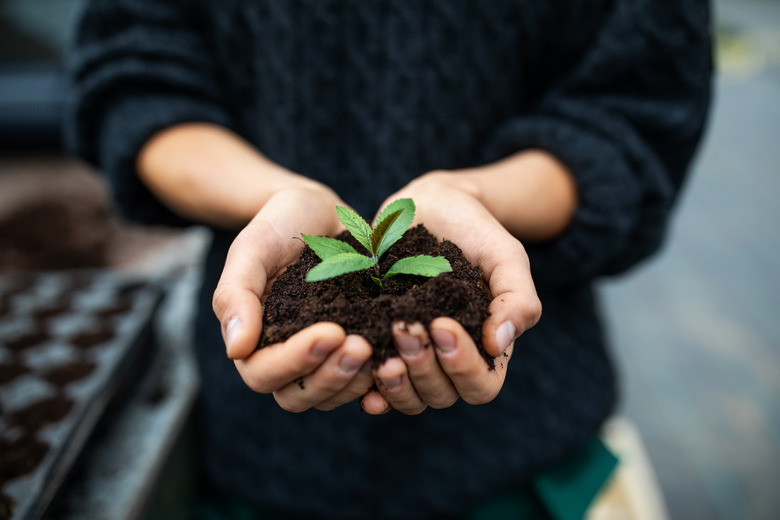What Is Humus Fertilizer?
Think of humus as a medium for nutrients that are released slowly into the soil over time. It's not fertilizer, it's not compost and it's not dirt—so "humus fertilizer" is not a thing. In fact, even experts consider it hard to describe, because its composition can vary so much.
**But humus is that rich, porous, organic substance that is the result of the natural decay of dead plants and animals.**
Humus in a Nutshell
Humus could naturally appear in a nutshell, but of course, we're referring to a quick-and-easy definition of the word. So here goes:
Humus Defined
- Humus is highly decomposed dead plant and animal residue. In fact, it represents the finest, most final stage of decomposition.
- Humus is the non-living, stable part of decomposed, organic materials. This means that it's the portion of organic matter that has already been super-decomposed and no longer contains living matter like leaves, animal remains, stems, and other plant parts or waste products.
- Humus is that substance under your feet when you hike through the forest. It's black or brown, loose and porous and may resemble very fine soil.
- Humus is a major player in nutrient distribution to plants, but it can be quickly depleted when plant residues are removed from a site, such as during some agricultural practices.
Humus holds nutrients, keeping them from leaching out into the soil through irrigation or rain. Humus is particularly effective at storing nitrogen, which is critical to foliage growth. If your garden soil comprises a high level of humus, you will need to fertilize less.
Is Compost the Same as Humus?
In a way, yes, compost is the same as humus. And some experts even use the terms simultaneously or say "humus soil," meaning the same as a compost-rich soil. But compost can be made in a matter of weeks, while humus takes years and sometimes even decades to form. That's because humus comes after compost in the decomposing process.
Compost is decomposed plants and sometimes animals, depending on the type of compost. Depending on how long it has been "cooking," it may contain some humus, but compost has not fully decomposed, because microscopic living critters, including bacteria, fungi and microbes, are still doing their thing.
Further, compost is generally created for use in a garden or for sale in a garden supply location. Compost is readily available in bags or delivered bulk to your location, which is not at all true of humus.
Can You Buy Humus?
Not really. Some manufacturers claim to sell humus or claim something is "rich in humus," but this usually means that the product contains some organic matter or that it's primarily compost or a mixture of manure and compost.
Why Is Humus Valuable to Plants?
A soil rich in humus is a healthy soil. Humus holds nutrients, keeping them from leaching out into the soil through irrigation or rain. Humus is particularly effective at storing nitrogen, which is critical to foliage growth. If your garden soil comprises a high level of humus, you will need to fertilize less. In contrast, for instance, a sandy soil that's low in humus allows nutrients to flow right through it.
Humus is also important for soil texture. As organic matter fully decomposes to become humus, soil particles are glued together into larger particles that in turn support a good balance of water-holding capacity and drainage, while oxygen can more easily reach plant roots.
References
- University of Delaware Cooperative Extension: Humus
- University of Florida IFAS Extension: Soils and Fertilizers for Master Gardeners: Soil Organic Matter and Organic Amendmends
- University of Maine Cooperative Extension: Soil and Plant Nutrition – A Gardener's Perspective
- University of Buffalo: Organic Matter
- National Geographic: Humus
